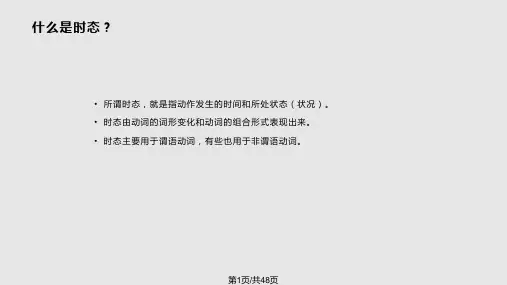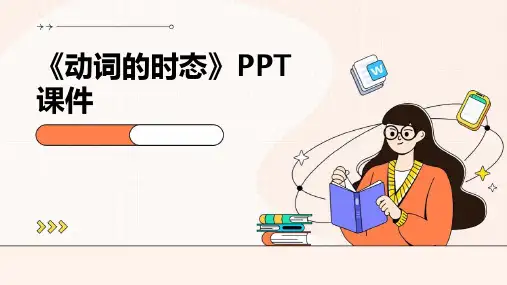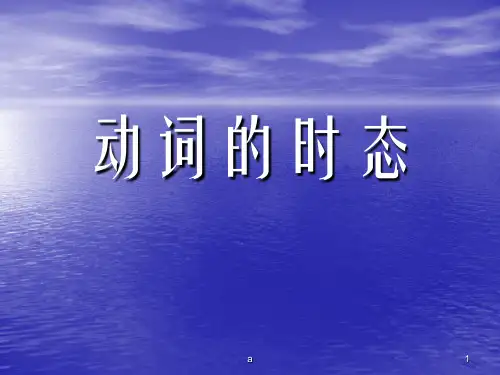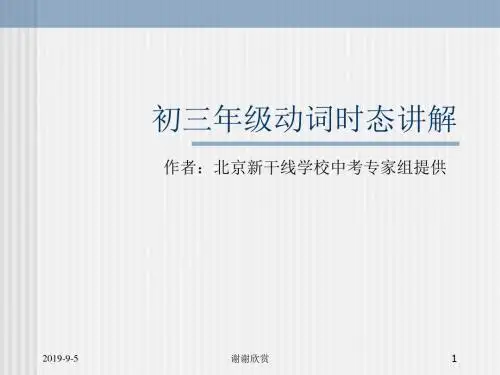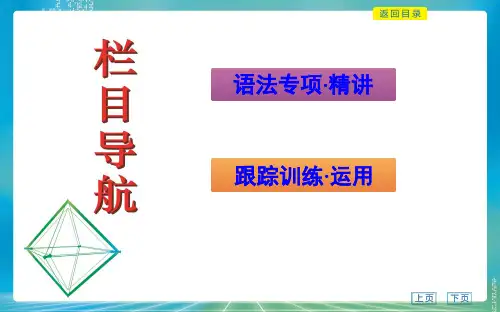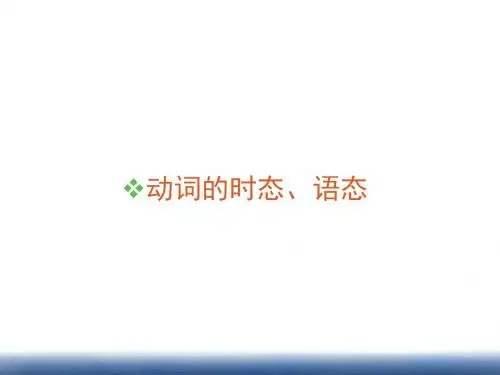7
现在完成时
构成:has/have + v-ed
含义:
1.现在完成时所表示的动作在说话之前已完成, 强调对现在造成的影响和结果;
—Good morning,I wonder if you can help.I ________ my
coat.
—Oh,where did you lose it,madam?
university . 二、有些表示“移动”的动词:go , come , leave , arrive , set out , take off 等的过去进行时常表示过去 将来时。 1. John told us they were leaving (leave) for London the next week and that they were coming(come) to say goodbye that evening .
动作。 I'll wait until he has written his letter. If I have finished my homework,I'll go with you.
10
注意1
短暂性动词(如:come ,go ,return , die , join , marry , buy , leave, get, begin , catch , end , finish 等 )可以用于完成时, 但不能与for ,since 构成的短语连用。如:
A.have lost
B.lost
C.had lost
D.lose
8
2.现在完成时所表示的动作开始于过去,持续 到现在,也许还会持续下去。常和for和since这 种表示一段时间的状语,或so far、up to now ,recently/lately、段时间+before,never, already,yet,during/over /in the last/past +时 间等状语连用。
